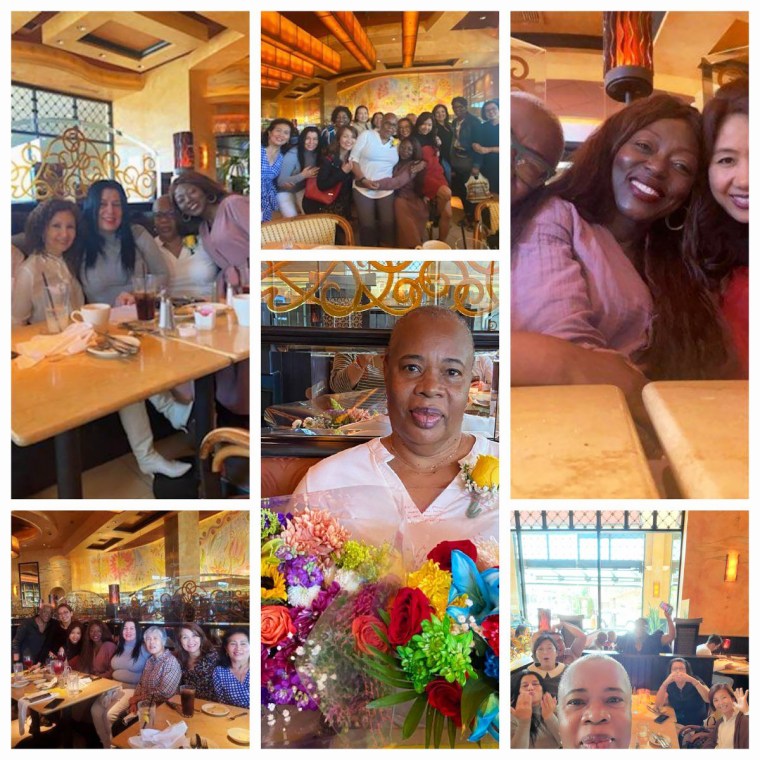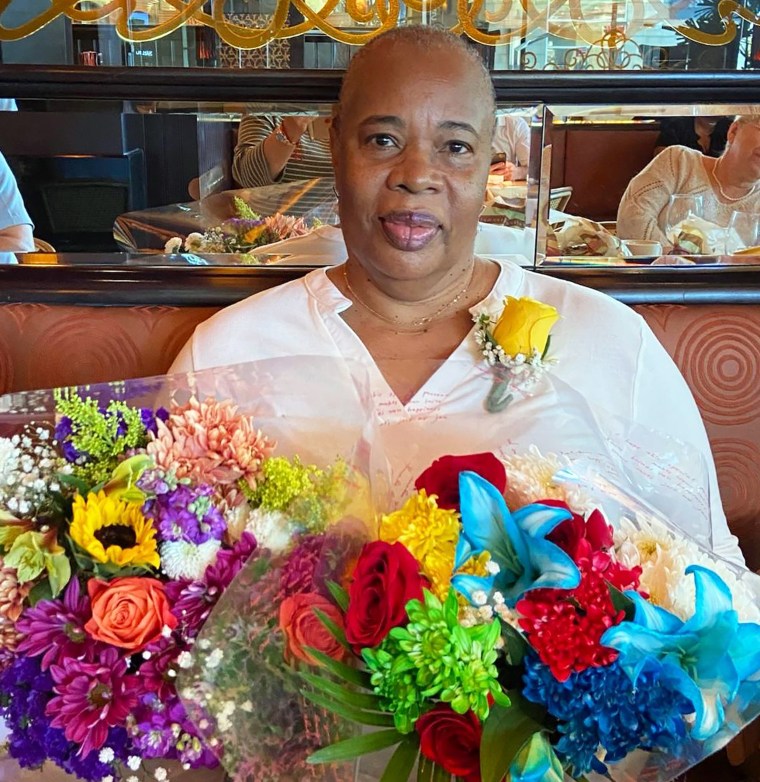When Saundra Moore experienced a pain in her side, she visited her doctor, who ran tests, but everything looked normal and the pain subsided so she forgot about it. About a year later, the pain returned — and it had intensified.
“The pain was worse,” Moore, 64, of Queens, NY, tells TODAY.com. “At the emergency room they basically were trying to figure out what type of pain it was.”
After a CT scan with barium, doctors noticed two nodes on her lungs, and they recommended she visit with a pulmonologist. After more tests and a biopsy, Moore learned what was wrong: She had lung cancer. The former intensive care nurse felt stunned — she had never smoked.
“I was very surprised. Even my pulmonologist was very surprised. He said, ‘Saundra, I’m looking at you and you’re a very healthy person,’” she recalls. “I don’t understand what the heck (happened).”
A pain in her side reveals unlikely cause
When Moore first experienced the pain in her side, she visited her doctor who ran tests. Everything came back negative, and the pain went away. But when it returned a year later in 2020, it felt worse, and she visited the emergency room. This time they conducted a CT scan with contrasting agent, which showed the nodules.
“I just had this discomfort in the upper right side of my back,” she says. “They found incidental findings, which were on my left side, not my right side, which the incidental findings showed two nodes on my left lower lung.”
The emergency room doctors didn’t make a diagnosis, but they urged her to follow-up with a pulmonologist to learn more. When the pulmonologist first saw the scans, he didn’t know what to make of the spots either.
“Basically, they weren’t sure either,” Moore says. “I wasn’t symptomatic. I had no difficulty in breathing. I had no coughing, no hoarseness ... which were the typical signs, and I don’t smoke.”

She had a biopsy, which revealed she had a carcinoma, and she visited a few oncologists to understand what her treatment options were. Some suggested more conservative approaches. Then she met with Dr. Raja Flores, chair of thoracic surgery at Mount Sinai Health System.
“He said, ‘I will not watch you. I’m going to remove the lower lobe because I don’t want to have to come back to do something all over again,’” Moore says.
After some consideration, she realized this is what she wanted.
Moore’s nodes rested on the outer lining of the lung and Flores used minimally invasive surgery to remove them and the lobe. She had stage 1 lung cancer, but each nodule was a different type of cancer.
“She actually had two different cancers in that lobe,” Flores tells TODAY.com. “We see (two cancers at once) enough, but no, it’s not common.”
While in the hospital, Moore was walking to the bathroom when she fainted. That’s when they discovered she developed some blood clots in her lungs, also called pulmonary embolism, which extended her hospital stay to six days. Doctors wanted to monitor her breathing and heart rate and prevent the clot from traveling to her heart or brain.
“Despite me having a pulmonary embolism, my oxygen levels were still pretty good,” she said. “Emotionally it took a lot from me because I’m usually a very independent person, and to me, it was having to depend on others to do things for me, which I didn’t like.”
Lung cancer in nonsmokers
Many people believe that only smokers get lung cancers, but experts say this isn’t true. “The main risk factor for having lung cancer is having two lungs,” Flores says. “Anybody with two lungs can get lung cancer.”
While smoking and vaping increase one’s risk for lung cancer, people who have never smoked can develop the cancer. Flores says if doctors dig deeper, they normally find some probable reason, such as living with a smoker, residing somewhere with high air pollution or being exposed to asbestos or radon.
“They usually attribute it to bad luck, and I don’t think luck plays any role,” he says. “If you’ve developed lung cancer it’s because you’ve had some exposure.”
While Moore sought help because she experienced pain, Flores says this isn’t a common sign of early stage lung cancer.
“Usually if you have pain from a lung cancer it means it’s advanced and hers was curable,” he says. “She probably had pain from something else.”
He adds that symptoms of lung cancer also start in later stages of cancer. But he urges people to seek help if they experience:
- A persistent cough
- Blood when you cough
It’s tough to catch lung cancer in early stages, which is why screening can be important.
“If you have a risk factor, smoking history, asbestos (exposure), you should get screened for lung cancer,” he says. “If you find it early, you can remove it with a small piece of lung and you can be cured.”
Recovering from surgery
It took Moore five or six months to physically recover from her surgery. While she’s returned to gym — and a more active life — she still needs to remember to take things easy.
“I’m always in a hurry to do things. I have to slowly take my time,” she says. “I try to breathe the way I normally want to breathe so (returning to that) took a little bit of time.”

Grappling with the feelings she experienced has taken longer.
“My emotional recovery for me, I’m still trying to recover,” she says. “Last night I was crying because it actually hit me suddenly.”
Moore realized how important it was to take care of herself.
“I was so caught up in taking care of everyone else I wasn’t even taking care of my own self,” she says. “Pay attention to yourself. Pay attention to what’s going on in your own body.”